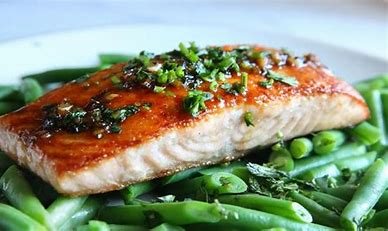|
Have Osteoarthritis, Eat Healthily! By Pierre Mouchette | Bits-n-Pieces When planning to tackle your osteoarthritis, do not overlook the power of food. No specific diet will treat your problem, but you can get significant health benefits if you eat smart. You will keep your weight under control, build strong cartilage, and cut some inflammation. To do this will not require a significant overhaul of your current diet. Follow the simple steps listed below to keep your joints happy.
Cut down Extra Calories Your knees will feel better if you keep your waistline trim. When you drop those extra pounds, you will put less stress on your joints. An excellent way to lower your calorie count is to take smaller portions, avoid sugary foods and drinks, and eat mostly plant-based foods. Use a smaller plate, utensils, and glasses. Eat More Fruits and Veggies Do not hesitate to eat plenty of fruits and vegetables because many are loaded with antioxidants, which can help protect your bodys cells from damage. Several antioxidants found in fruits and veggies like apples, onions, shallots, and strawberries, may also help reduce joint inflammation and pain. Add Omega-3 Fatty Acids Omega-3s can help to relieve your joint pain and decrease morning stiffness. They act by reducing inflammation in the body. A simple means to add them to your diet, is to eat two 3-ounce servings of fatty fish each week. Some of the very best sources of omega-3s are trout, salmon, mackerel, herring, tuna, and sardines. Use Olive Oil instead of Other Fats Studies show that a compound in olive oil, called oleocanthal, has the same anti-inflammatory effects as ibuprofen. Olive oils with the most vigorous flavor have the highest amount. Add olive oil to your diet without adding extra calories, by using it in place of other fats. Get Enough Vitamin C Vitamin C helps build collagen and connective tissue, crucial for joint health. Lots of tasty foods can give you this nutrient, such as citrus fruits, red peppers, strawberries, broccoli, cabbage, and kale. Target for the recommended 75 milligrams a day for women or 90 milligrams a day for men. Avoid The High Cooking Temperatures Meat cooked at high temperatures makes compounds that can cause inflammation in your body. They are called Advanced Glycation End-products (AGEs), and they have been associated to diseases such as arthritis, heart disease, and diabetes. Reduce your levels of AGEs by cutting back on grilled, fried, broiled, and microwaved meats. It is also helpful to limit processed foods, as they are often cooked at high temperatures. Comments are closed.
|
Archives
May 2024
|
